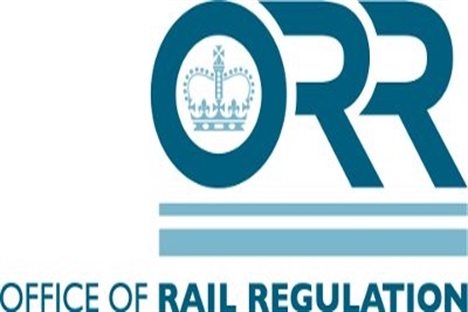26.11.15
DfT to fundamentally review role of ORR
Transport secretary Patrick McLoughlin has confirmed that there will be a “fundamental review” of the role and responsibilities of the Office of Rail and Road (ORR), following the publication of the Bowe Review into the planning of Network Rail's enhancements CP5 programme.
Dame Colette’s review was published yesterday, alongside the long-awaited Hendy Review into CP5 funding, and stated that that too much responsibility was attributed to ORR, whose role “was unclear”.
Last week the Public Accounts Committee (PAC) also called for a review of the regulator after suggesting it might not be fit for purpose to “robustly scrutinise” Network Rail’s plans and cost estimates.

The Bowe Review concluded that there is no one overarching cause which explains the cost escalation and delays to projects and programmes in CP5. Instead, a number of issues have combined to require this programme to be reviewed and elements to be replanned. These include:
- Planning processes, which had been thought to have worked successfully at the previous control period, have been shown to be inadequate in the face of the scale and complexity of the CP5 programme – including, very importantly, proposed electrification works on a scale not attempted before in the UK;
- The definition of organisational responsibilities between the Department, Network Rail and the ORR. These were unclear, lacking the relentless focus and clarity required for the design and execution of a major infrastructure programme;
- The fact that the overall plans encompassed a complex portfolio of schemes, subject to poor scope definition from the outset and ongoing ‘scope creep’ which led to cost increases;
- Issues of effective internal programme and portfolio management, notably at Network Rail, where a combination of changing internal structures and responsibilities obscured lines of accountability for efficiency and delivery; and
- When it came to delivery, early costing errors, unanticipated interdependencies, lower than expected productivity and the failure to ensure agreed front end scope definition have also contributed.
Dame Colette added that there needs to be a clarification of the organisational responsibilities of the three organisations, particularly in light of the reclassification of Network Rail, which has changed the context significantly, and ensuring that the necessary capabilities are in place.
She also want to ensuring “significantly more robust” programme governance and oversight of the planning process, with clarity around schemes at all stages of development, and considering whether bespoke arrangements for major and complex elements of the enhancements programme should be more widely used.
Additionally, there needs to be a much stronger focus on deliverability, including the implications throughout for the supply chain, and the availability of people with the right skills – in all three organisations.
The ORR said that with the changes to Network Rail’s ownership and finances since it became a public sector company, ORR agrees that a review of its own role in major projects is appropriate.
Responding to the recommendations, McLoughlin said: “As a result of your report, the role and responsibilities of ORR will be fundamentally reviewed. It is important that the regulatory regime is supportive of, and responsive to, the challenges of planning and managing complex infrastructure projects that, by their very nature evolve and change over time and often span more than one control period.”
He said the review will have particular regard to:
- the arrangements for securing value for money from investment in the railway, both from taxpayers and other sources
- the arrangements for securing the protection of the interests of users
- the importance of an environment that supports private sector investment and involvement in the rail sector, and
- the changed context for investment in the railway following the reclassification of Network Rail to the public sector.
McLoughlin added that the proposed review will be carried out in parallel with Nicola Shaw's report, due in 2016, so that any changes can be aligned with her conclusions.
The transport secretary also noted that the DfT is working with Network Rail to strengthen the governance and day-to-day management of the process for planning and overseeing rail enhancements, “providing clearer accountability for associated costs and project management”.
Additionally, in the future, all projects will be subject to a clear change control process.
“These new arrangements will be underpinned by improved governance arrangements between the Department and Network Rail,” he said. “These measures will reset the formal framework and will be underpinned by a new Memorandum of Understanding which I will publish next March.”